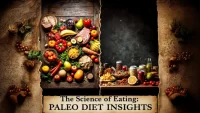Nutrition is the foundation of holistic wellness—it affects every cell, organ, and system in your body. Yet, in today’s fast-paced world, many prioritize convenience over nourishment, leading to fatigue, chronic disease, and poor mental health.
This article explores how food choices influence long-term health, from disease prevention to mental clarity. You’ll learn science-backed nutrition principles that promote vitality at every stage of life.
Understanding Holistic Wellness: More Than Just Physical Health
What Holistic Wellness Really Means
Holistic wellness integrates physical, mental, emotional, and spiritual health. Unlike quick-fix diets, it focuses on sustainable nourishment that supports total well-being.
How Nutrition Fits In
- Fuels energy for daily activities and exercise.
- Supports brain function, mood, and stress resilience.
- Strengthens immunity to fight illness.
- Promotes healthy aging by reducing inflammation.
Macronutrients: The Building Blocks of a Balanced Diet
Protein: Essential for Repair and Growth
- Why it matters: Repairs tissues, builds muscle, and produces enzymes.
- Best sources: Lean meats, fish, eggs, legumes, and plant-based proteins.
Carbohydrates: Your Body’s Preferred Energy Source
- Myth busted: Not all carbs are bad—whole grains, fruits, and veggies provide fiber and nutrients.
- Avoid: Refined sugars and processed grains that spike blood sugar.
Healthy Fats: Critical for Brain and Heart Health
- Key benefits: Supports hormone production and nutrient absorption.
- Top choices: Avocados, nuts, seeds, olive oil, and fatty fish.
Micronutrients: The Unsung Heroes of Longevity
Vitamins and Minerals You Can’t Ignore
- Vitamin D: Strengthens bones and immunity. (Found in sunlight, fatty fish, and fortified foods.)
- Magnesium: Reduces stress and improves sleep. (Present in leafy greens, nuts, and seeds.)
- Antioxidants (Vitamins C & E): Fight oxidative stress and aging. (Berries, citrus fruits, and almonds are rich sources.)
Signs of Deficiency
- Fatigue, weak immunity, poor concentration, and slow recovery.
Gut Health: The Secret to Immunity and Mental Well-Being
The Gut-Brain Connection
Your gut microbiome influences mood, digestion, and disease resistance.
How to Nourish Your Gut
- Eat probiotic-rich foods (yogurt, kefir, sauerkraut).
- Increase prebiotic fiber (garlic, onions, bananas).
- Avoid processed foods and artificial sweeteners that harm gut bacteria.
Inflammation: The Silent Killer and How to Fight It
Chronic Inflammation’s Role in Disease
Linked to heart disease, diabetes, and Alzheimer’s.
Anti-Inflammatory Foods to Prioritize
- Omega-3s (salmon, chia seeds, walnuts).
- Turmeric and ginger (natural anti-inflammatories).
- Colorful fruits and veggies (packed with phytonutrients).
Nutrition for Mental Health: Feeding Your Brain
Foods That Boost Mood and Focus
- Fatty fish (rich in brain-loving DHA).
- Dark chocolate (improves serotonin levels).
- Leafy greens (high in folate, which fights depression).
The Sugar-Anxiety Connection
High sugar intake worsens anxiety and brain fog.
Sustainable Eating: Nutrition That’s Good for You and the Planet
Plant-Based Diets and Longevity
Studies show Mediterranean and plant-focused diets promote longevity.
How to Eat Sustainably
- Choose local, seasonal produce.
- Reduce processed and packaged foods.
- Opt for grass-fed and ethically sourced meats.
Debunking Common Nutrition Myths
Myth: “Eating Fat Makes You Fat”
- Truth: Healthy fats support metabolism and satiety.
Myth: “All Calories Are Equal”
- Truth: Nutrient-dense foods fuel your body better than empty calories.
Myth: “You Need Supplements to Be Healthy”
- Truth: Whole foods provide superior nutrition compared to synthetic pills.
FAQs: Your Top Nutrition Questions Answered
1. What’s the best diet for long-term health?
A balanced, whole-food-based diet like Mediterranean or DASH eating patterns.
2. Can nutrition reverse chronic disease?
Yes! Diabetes, heart disease, and hypertension often improve with dietary changes.
3. How does hydration impact wellness?
Water regulates digestion, energy, and detoxification—aim for half your body weight in ounces daily.
4. Are organic foods worth the cost?
Prioritize organic for the Dirty Dozen (most pesticide-heavy produce).
5. What’s the best way to start eating healthier?
Small swaps—replace soda with sparkling water, swap white rice for quinoa.
Conclusion: Transform Your Health Through Mindful Nutrition
Nutrition isn’t about restriction—it’s about empowering your body to thrive. By prioritizing whole foods, gut health, and anti-inflammatory choices, you invest in longevity, energy, and mental clarity.
Ready to take control? Start with one positive change today—your future self will thank you!
Found this helpful? Share it with someone who deserves vibrant health!
(Internal links: [Meal Planning for Beginners], [Best Anti-Inflammatory Foods])
(External sources: [Harvard Nutrition School], [Mayo Clinic Diet Guidelines])











